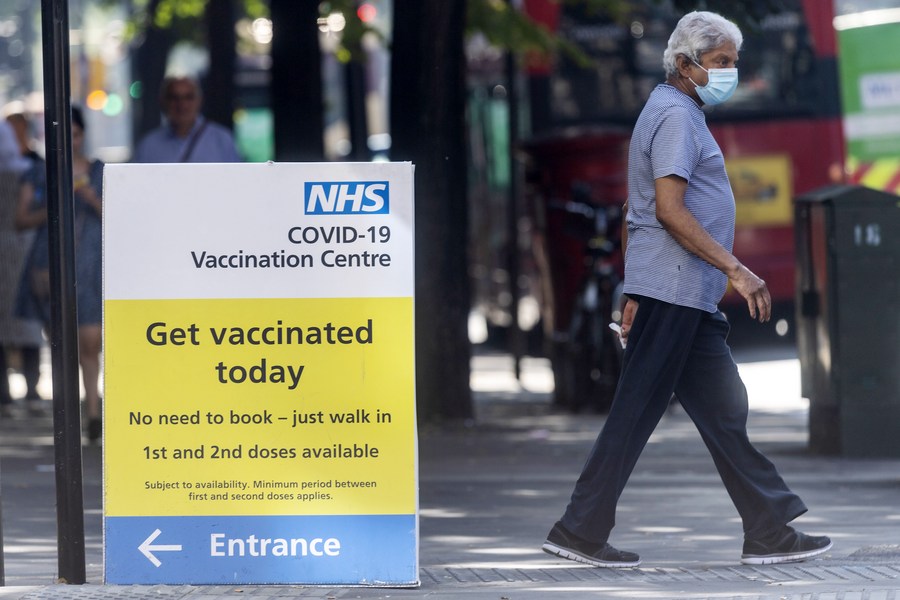Study condemns UK COVID-19 response


Report claims early weeks of pandemic were viewed through a 'veil of ignorance'
An independent report by members of Parliament has said the United Kingdom's slow response to stopping the spread of COVID-19 at the start of the pandemic led to "one of the worst ever public health failures."
The report, called Coronavirus: Lessons Learned to Date, focuses primarily on what happened in England, rather than the whole UK, and was compiled by the all-party Health and Social Care and Science and Technology Committees.
According to government figures published on Monday, the UK's death toll from the pandemic is 137,763, with 160,824 death certificates mentioning COVID-19. In all of Europe, only Russia has a higher figure.
On March 3, 2020, 20 days before the first national lockdown was introduced, Prime Minister Boris Johnson, who is currently away on holiday, told a news conference: "I was at a hospital the other night where I think there were a few coronavirus patients and I shook hands with everybody, you will be pleased to know, and I continue to shake hands.
"People obviously can make up their own minds but I think the scientific evidence is … our judgment is that washing your hands is the crucial thing."
However, that same day, the Guardian reported that the government's Scientific Advisory Group for Emergencies had suggested the government should "advise against greetings such as shaking hands and hugging, given existing evidence about the importance of hand hygiene".
The delayed introduction of lockdown is thought to have cost thousands of lives, and the report said that the failure to learn from countries affected earlier, such as China and Italy, meant "the veil of ignorance through which the UK viewed the initial weeks of the pandemic was partly self-inflicted".
The contentious issue of whether herd immunity was ever government policy was addressed, but Jeremy Hunt, chair of the Health and Social Care Committee, said he could not see there was a conscious desire for it.
However, he told the BBC Radio 4 Today program, there was a "fatalism that it was likely that in the end, that will be the only way that we will stop the progress of the virus".
"I think we wanted to do everything we could but once we had concluded there was community transmission, that was going to be very difficult."
Delaying lockdown was called a "serious early error" and the test and trace service, introduced in late May, was described as "slow, uncertain and often chaotic".
Hunt told Sky News politicians should have questioned the advice that they were being given.
"We know that some of that scientific advice was wrong, but also that politicians should have challenged that advice," he said.
"You can't just say 'we're following the science'-you have to dig down and ask why scientists are saying what they're saying. That challenge should have happened earlier."
The report praised response efforts that had worked, with the speed of production of vaccines such as the Oxford/AstraZeneca dose, and the effectiveness of the mass vaccine program, highlighted.
But ultimately the report picked out the slow response and introduction of lockdown as the main drivers of how the pandemic panned out.
"This slow and gradualist approach was not inadvertent, nor did it reflect bureaucratic delay or disagreement between ministers and their advisers. It was a deliberate policy-proposed by official scientific advisers and adopted by the governments of all of the nations of the UK," the report said.
When interviewed on Sky News, Cabinet Office minister Stephen Barclay repeatedly refused the opportunity to apologize for the government's handling of the crisis.
"Of course, if there are lessons to learn, we're keen to do so," he said.
When offered the chance to apologize again, he continued in the same vein. "Well no, we followed the scientific advice, we protected the (National Health Service), we took the decisions based on the evidence before us," he said.
"But of course, we've always said with something so unprecedented as the pandemic, there will be lessons to learn; we're keen to learn them."

































